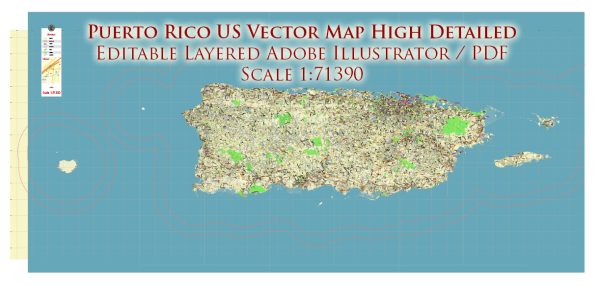Puerto Rico is not a U.S. state; it is an unincorporated territory of the United States. As an unincorporated territory, Puerto Rico has a unique political and administrative status within the United States. Here is a brief description of its administrative and political characteristics:
- Commonwealth Status: Puerto Rico is officially known as the “Commonwealth of Puerto Rico.” This term was established in 1952 when the local government adopted its own constitution, which was later approved by the U.S. Congress. This constitution granted Puerto Rico a significant degree of self-government in local matters.
- Self-Government: Puerto Rico has its own government with a governor and a legislative assembly, consisting of a Senate and a House of Representatives. These elected officials have authority over various aspects of local governance, including education, transportation, and public safety.
- U.S. Citizenship: All residents of Puerto Rico are U.S. citizens by birth. However, they do not have full voting representation in the U.S. Congress. While Puerto Ricans can vote in U.S. presidential primaries, they cannot vote for the President in the general election. They also have a non-voting Resident Commissioner in the U.S. House of Representatives.
- Economic Relationship: Puerto Rico uses the U.S. dollar as its official currency and enjoys certain economic benefits and disadvantages as a result of its relationship with the United States. For example, it is exempt from most federal taxes, but residents also do not have access to certain federal welfare programs to the same extent as residents of the 50 U.S. states.
- Federal Oversight: In recent years, Puerto Rico has faced significant financial and economic challenges, leading to the imposition of a federally-appointed financial oversight board. This board has significant authority over the territory’s finances.
- Language: Both English and Spanish are official languages in Puerto Rico, with Spanish being the predominant language spoken by the population.
- Cultural Identity: Puerto Rico has a distinct cultural identity influenced by a mix of Spanish, African, Taino, and American cultures. This is reflected in its music, cuisine, and traditions.
It’s important to note that the political status of Puerto Rico has been a subject of debate and discussion for many years. Some Puerto Ricans advocate for statehood, while others prefer to maintain the current Commonwealth status or seek full independence. The island’s political status remains a complex and evolving issue within the United States.


 Author: Kirill Shrayber, Ph.D.
Author: Kirill Shrayber, Ph.D.